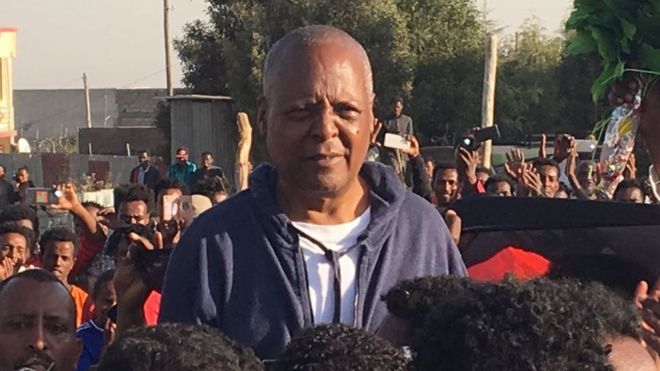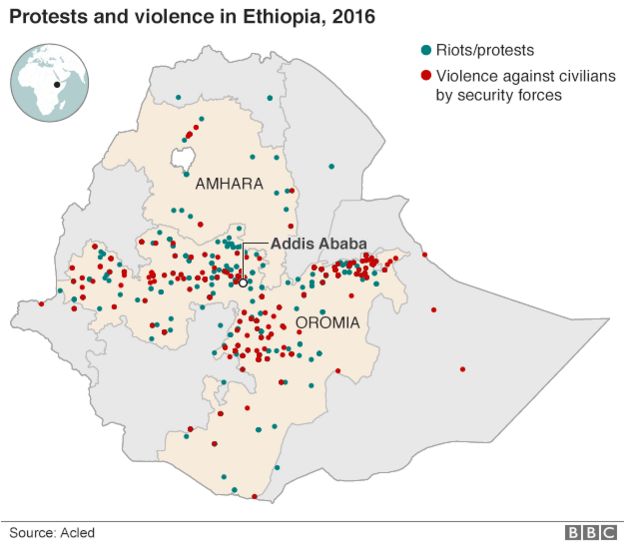Etenesh Abera
Addis Abeba, January 21/2018 – “At least five people were killed” yesterday and several others wounded when security forces opened fire at festival goers in Weldiya, some 510 km north of the capital Addis Ababa, in Amhara regional state, according to Alemayehu Yemiru, a resident of the town; but Alemayehu said he believes the number of causalities could be “much higher.” “It is hard to know the exact figure at this point before this chaos has subsided.” And according to a nurse in Weldia General Hospital, at least 18 people were also admitted to the hospital after sustaining “wounds from gun shots”; seven of them have sustained “serious injuries.”

The killing occurred in the second day of the annual celebrations of Timket, (Epiphany), an outdoor festival involving several activities by followers of the Ethiopian Orthodox Twahido church throughout the country. “After sending off the St. Michael Tabot (The replica of Tablet of the Law) to its Church in early afternoon, the youth have continued singing and dancing while marching through the town; at some point the songs have changed into anti-government protest songs,” said Alemayehu in a phone interview with Addis Standard.
According to another source who wants to remain anonymous, there were “heavy security presence, including members of the federal army and the region’s police forces” throughout the festival since last Friday. “The only ones that were not armed were the city police forces,” said our interviewee, adding “I don’t understand why the security forces needed to open fire at the young people who were doing nothing but singing protest songs and marching through the city.”
Nigussu Tilahun, head of the communication bureau of the Amhara regional state, confirmed the news on his Facebook post written in Amharic. He said that “people’s lives were lost” in a “conflict” between security forces and the youth in Weldiya town. He didn’t mention the number causalities but he said that after thorough investigations, the government would bring those responsible for “instigating the violence” and causing the death of “innocent civilians.”
According to Alemayehu Yemiru, members of the federal army and the Amhara regional state special security forces “have not left the town since the first week of December 2017 and hundreds of heavily armed security forces were dispatched to the festival areas including the church premises, which is very disturbing to see.” He said he also heard that there were causalities among the unarmed city police members, “but I can’t confirm that information.”
On December 03, 2017, a football match planned to happen between Mekelle city and Woldiya city was cancelled after protests have erupted in the city the previous day resulting in damages to several properties including some owned by businesses from Tigray regional state. A week later Tigrayan students from the Woldiya University have briefly left their campus for fear of ethnic clashes. They were quickly returned following interventions from local elders.
Alemayehu says further crackdown may follow today as protests were happening in various parts of the town denouncing yesterday’s killings. The internet has been cut off since yesterday afternoon, making obtaining pictures of the scene hard. AS
'via Blog this'




